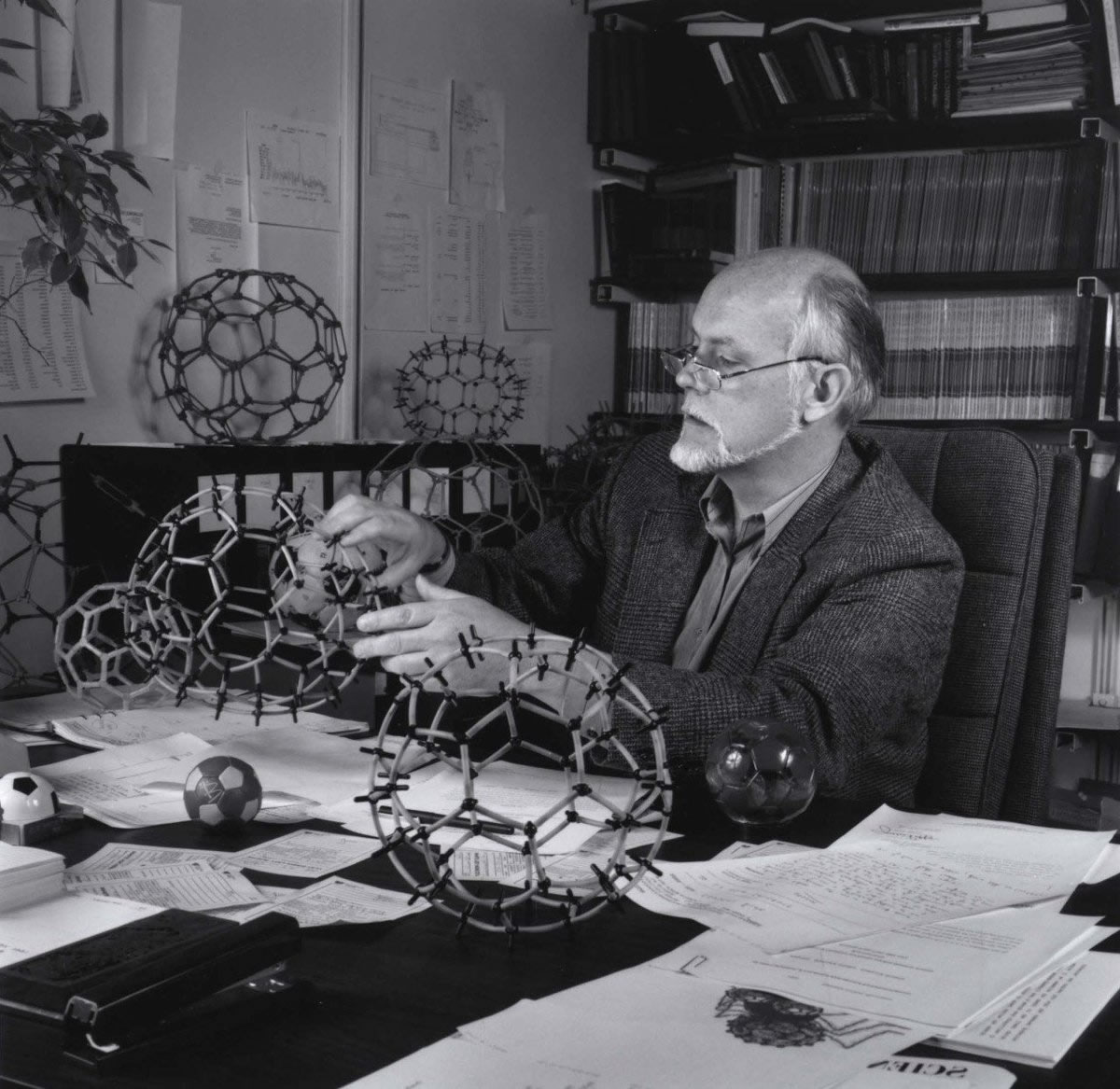|
With so many pressing concerns, how do we assess what's truly important? If we merely respond to the most recent
crises, it’s clear that another will follow along soon: Hurricanes Sandy and Harvey,
droughts in South Africa and Australia, famine in the African Sahel, bird flu
and Ebola and multiple Middle East wars.
 Along with Harold
Kroto and Robert Curl, Nobel Chemistry Prize Laureate Richard Smalley (right)
was honored for discovering the Carbon 60 structure Buckminsterfullerene, the
"Buckyball." This award enabled Dr. Smalley a platform to express his global
concerns and "Top 10 Problems of Humanity for the next 50 years" — in order of
importance: Along with Harold
Kroto and Robert Curl, Nobel Chemistry Prize Laureate Richard Smalley (right)
was honored for discovering the Carbon 60 structure Buckminsterfullerene, the
"Buckyball." This award enabled Dr. Smalley a platform to express his global
concerns and "Top 10 Problems of Humanity for the next 50 years" — in order of
importance:
- Energy
- Water
- Food
- Environment
- Poverty
- Terrorism & War
- Disease
- Education
- Democracy
- Population
Energy for all was his highest priority as
it is fundamental to all other human systems. Sufficient energy would enable a
city/community to pump and filter (or desalinate) clean water. Energy plus
water allow us to grow food for all. With these three needs met, we can address
our environmental problems, then poverty. Smalley said ‘solving each social
problem in succession builds the structure for the next challenge.’
Every year, global business leaders gather
in Davos, Switzerland for the World Economic Forum. It's an exclusive event
that enables corporate titans to hear from policy-makers, financial experts and
thought leaders on the key trends and issues of our time. Their Global Risk
Interconnected Map is an infographic of our complex global issues, their
relative magnitude and potential impact.
Just as with Dr. Smalley, you can see that
getting energy for all affects food and water systems directly. Linking
clean/renewable energy provides the platform for everything to build upon.
100% renewable energy for your city, state
and nation is the goal — and many leaders already exist.
In Partnership for the Planet, |